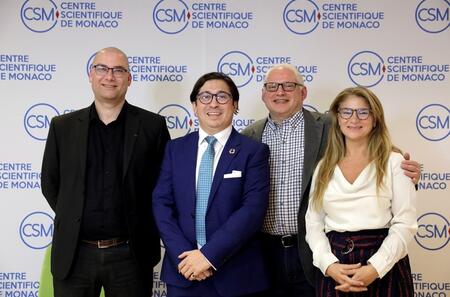
About 20% of the world’s coral reefs have been destroyed with no possible recovery.
The UN Sustainable Development Goal 14, Life below water aims to conserve oceans and
seas. They are trying to implement international law and develop activities to safeguard marine
and coastal ecosystems, as well as prevent and reduce marine pollution.
Even if we don’t live close to the sea, we all contribute to the degradation of life below water:
• Our waste is finally a part of the massive floating garbage islands
• Our behavior as seafood consumers may contribute to overfishing
• Our behavior as tourists, which destination we choose and activities we want to do
might impact marin habitats.
Did you know? Oceans absorb about 30 percent of carbon dioxide produced by humans.
As everybody know, due to our carbon emissions and pollution, we faced the problem of the
global warming. And this hot temperature impact even more the oceans. As a result, the ocean
heat cause widespread main heatwaves, but also acidification of the seas.
Nowadays, we try to prevent from the young age the importance of our responsible
consumption and explain them the pollution importance and how they can start being
ecological by their own.
Taken during the Monaco Ocean Week 2022 (with the founder and executive director of FuturED, Juan F. DÁVILA y VERDIN, FRSA).
The three main goals of this 14 SDG (Life Below Water) are:
Plastic dependency
As we may know, plastic is one of the main waste products that end up in the oceans, from our
consumption but also dumped directly into the sea (e.g. from ships, fishing equipment). The
United Nation estimate 8 million tonnes of plastics which ends up in the ocean each year.
Sustainable seafood
Still from the United Nation, they showed an estimation of 33% of the world’s fisheries
overfished and 60% fished to their maximum capacity.
Sustainable coastal tourism
For this third goal, we need to combine the economy growth with the tourism while protecting
the oceans. Mass tourism means infrastructure such as ports, airports, hotels… and ecological
impacts with seasonal waste production, high water and energy consumption, local transport,
etc..
How is the ocean connected to our health?
The diversity of species found in the ocean offers great promise for pharmaceuticals.
Furthermore, marine fisheries provide 57 million jobs globally and provide the primary source
of protein to over 50% of the population in least developed countries.
What can we do?
There are several ways to act more ocean-friendly. The easiest way is to simply spread the
message about how important marine life is and why we need to protect it. But most specifically,
we should reduce our plastic usage as much as possible by starting bringing our own bags when
we go shopping or to a grocery store. We can also participate to beach clean-ups. About the
illegal and over fishing, we may start selecting certified products and buying only sustainable
harvested fish. We might learn about this cause and be informed about which species are
endangered to not buy it.
FuturED is involved in this cause and care a lot about the environment. Last year, in 2021, we
participated to the MOPC, Monaco Ocean Protection Challenge. It is a students’ and young
entrepreneurs’ competition to provide them opportunities and skills to succeed in building
sustainable businesses for a better world. In 2022, FuturED also participated as speakers in the
Monaco Ocean Week.

What’s next?
The UN, United Nations, organise a lot of events all around the world to raise awareness about
ocean. Their next conference will take place in Lisbon, in Portugal, during the last week of
June, from the 27th to the 1st of July 2022. They will address many of the deep-rooted problems
of our societies laid bare by the COVID-19 pandemic and which will require major structural
transformations and common shared solutions that are anchored in the SDGs.
The Foundation of the Prince Albert II de Monaco has several projects or initiatives to develop.
The Pelagos initiative (2022-2027) about a marine territory of 87,500 km2 in the
waters of the Principality of Monaco, France and Italy, the three states being signatories of the
Pelagos Agreement. It contributes to the conservation of marine mammals, mitigation of all
types of pollution (chemical and noise pollution, pathogens, plastics), also related to seasonal
tourism but also create sustainable ports, boating, tourism, etc…
Join the cause, start acting to protect and save the ocean.
“Faith is knowing there is an ocean because you have seen a brook.”— William Arthur Ward

